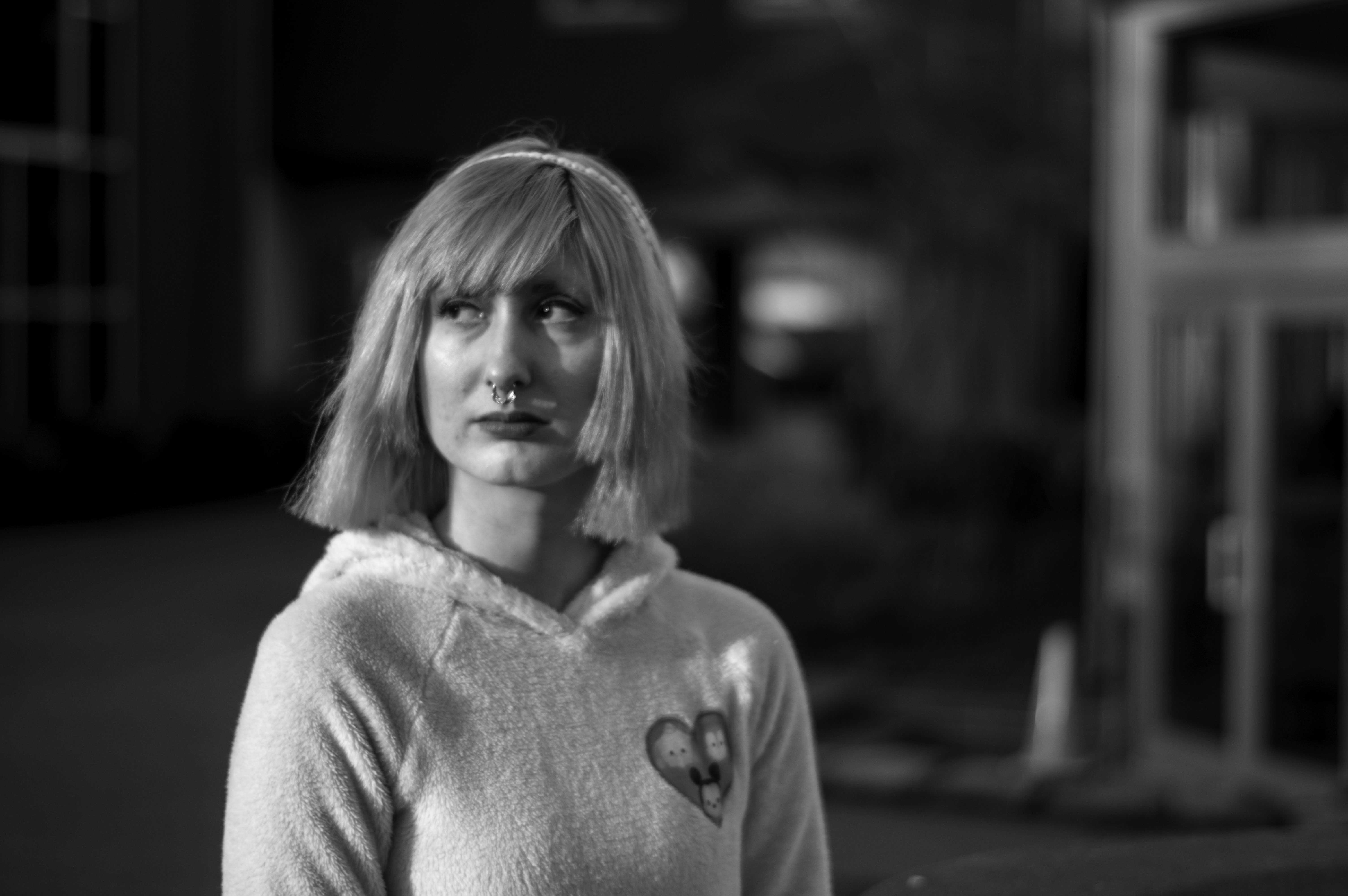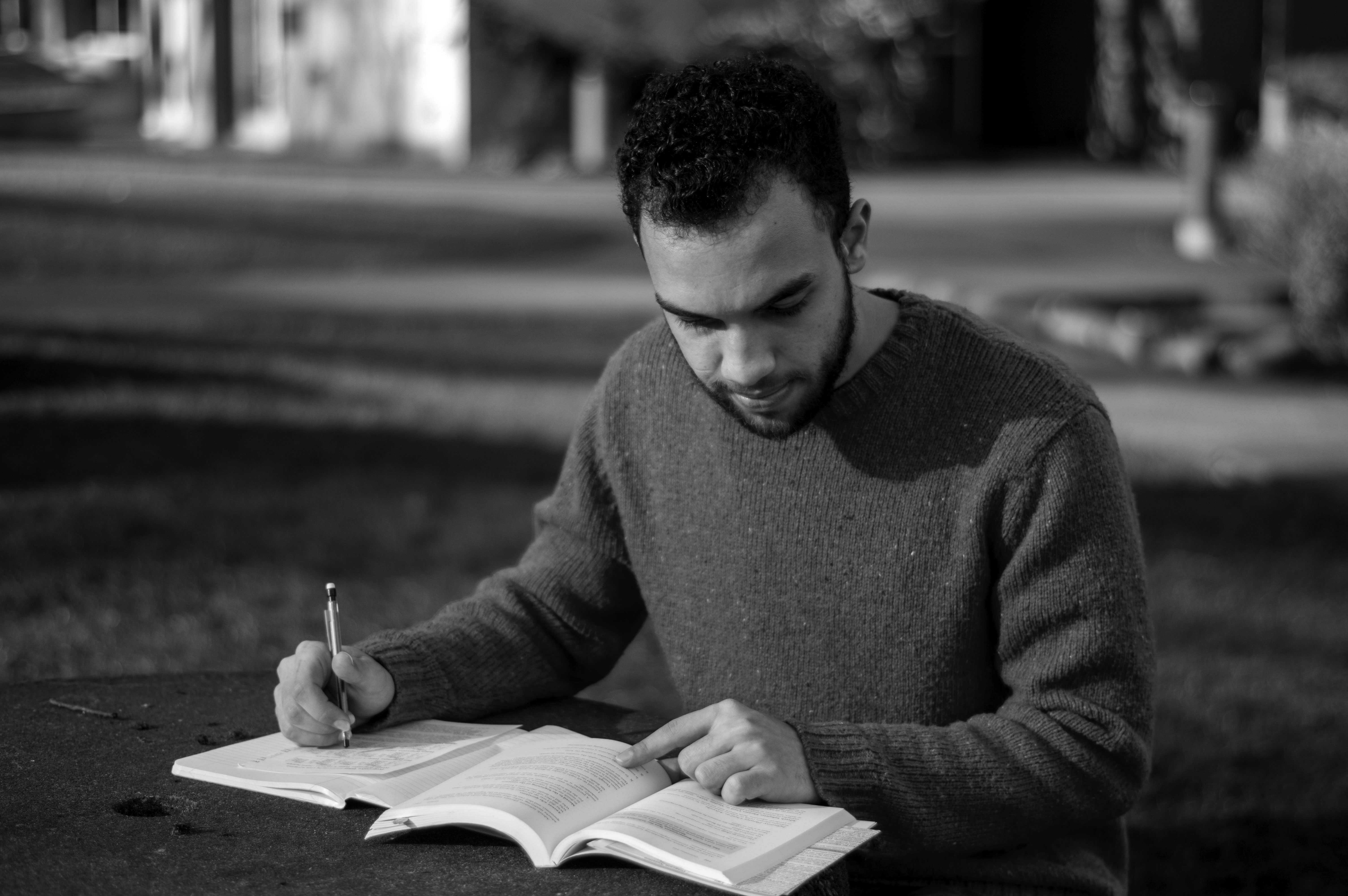By Julia Battishill and Laura Lothrop
Can you remember the first time you heard someone say “that’s so gay?” Were you in elementary or middle school? Did people laugh? Did they cringe?
First-year Alonso Ramirez-Sanchez remembers his experience with homophobic students in middle school quite clearly, and the rumors that circulated around his sexuality.
Fast forward to high school, and Ramirez-Sanchez saw the first signs of the LGBTQA+ community being treated with respect and admiration, he said. The phrase, “That’s so gay,” which derailed him from coming out in middle school, was no longer applicable in a high school where people were less judgmental.
Opening up to old and new friends on a 30-hour train ride to Orchestra Camp at Twin Rocks in Oregon, Ramirez-Sanchez received the wonderful affirmation from his peers, who told him that his sexual identity had no effect whatsoever on how they saw him
Freshmen year of high school was a turning point for Ramirez-Sanchez. Finally being honest with himself, he was relieved to receive support from every peer he told.
Coming to SPU, he found similar reactions.
In Ashton, SPU’s largest dorm, the name Alonso can be recognized by those on his floor. According to Ramirez-Sanchez, he has never felt disconnected from the community that the dorms offer.
He shared that he has never questioned his place in the halls of Ashton. Constantly invited, welcomed and included by his floor, Ramirez-Sanchez has said he feels at ease with the other students of his floor.
Breaking the news to his parents, however, was another story.
Ramirez-Sanchez came out to his parents just this past May. His mother took the news the hardest. She cried, he said, not out of shame but for fear that people would treat him differently or harshly because of their own prejudices.
First-year Andrew Honyak, like Ramirez-Sanchez, described generally positive experiences at SPU.
Honyak, however, notes that “if my sexuality affects something or someone in a negative way … I can feel that (people) are keeping me at arms length.”
Honyak said that this type of space placed between himself and other students never manifested in an outright attack, but was simply felt, and it did not allow for him to create connections that otherwise might have been formed.
This trend continued with sophomore Emilia Sunderland, a leader of who opened up about her experience during her freshman year in the dorms. Sunderland is one of the heads of Haven, the LGBTQA+ group at SPU.
When asked what would make SPU a university that better represents and includes LGTBQA+ students, Sunderland said that a more thorough look at roommate matching would have made her first year one with less friction and uncomfortable interactions.
Sunderland continued, saying that SPU’s admission office has recently been making the effort to change this going forward, and really making sure LGBTQA+ students are paired up with more open minded roommates.
The disparaging comments, rude remarks and ignorance of some students among classrooms and residence halls can be pinpointed by someone who identifies as LGBTQA+. Sunderland has said that she understands that some students are generally lacking in understanding and would likely be more compassionate if they were more educated in this area.
“The majority of what we get here, from my experience and talking with my friends, are just general exclusion and separating us,” Sunderland said regretfully. “We get a lot of comments, and it tends to come from people coming from conservative places who have just never been educated.”
Outside of the social atmosphere and residence halls, Ramirez-Sanchez, Honyak and Sunderland expressed satisfaction in regards to their professors and how they were treated by faculty on a daily basis. At the bare minimum, she said, the faculty of SPU was reportedly respectful to those who identify as LGBTQA+ students.

Sunderland said that while she knows not all her professors may be 100 percent supportive of her sexual identity, they are at least respectful and unbiased towards her.
“It’s really hard, I think, when you’re dealing with professors, because … it can be kind of messy if they are not accepting, because they’re your professor so you want to be on their good side,” Sunderland explained.
This related directly back to Ramirez-Sanchez’s time in high school and the way he was treated after coming out to his peers at school. He recognized who he truly was as an individual, putting aside the fears of the Catholic Church.
Reminiscing about his mother and what she was going through right after he came out to her, Ramirez-Sanchez said that days later, she confessed to the priest. His mother was worried for his salvation — a worry that her priest later calmed by explaining that what matters is that her son is a good, helpful person.
Ramirez-Sanchez shared that a major reason other members of the LGBTQA+ community quickly dismiss SPU is because of the word “Christian” in the description “private Christian university.”
“It’s that Christian part that kind of scares them away because they don’t, they just think, oh they’re Christian, they’re gonna judge me, they’re not gonna accept me; which is the giant misconception,” he explained.
Today, he says, the word “Christian” holds negative connotations that LGBTQA+ students are afraid to confront. When people, LGBTQA+ or not, hear the word “Christian,” they automatically think of a person who judges, Ramirez-Sanchez explained.
Ramirez-Sanchez was adamant in the notion that real Christians are people who leave the judging to God and do not pass judgement on others.
“I’ve never encountered someone who even addressed me like, positively or negatively for being gay,” he said. “They were just, ‘Oh, thats Alonso, we know Alonso.’ He’s not gay Alonso. He’s not … Mexican Alonso, he’s Alonso.”
He continued, “I really think its the people here [that make it so accepting], but I also think it’s how the school…goes upon a lot of it. At least [in] my personal experience, a lot of people that go here [who are] Christians … they might not think that gay marriage is great, but they’re not going to hate on gay people.”
So how do people that are not straight feel about living on a Christian campus? What attitude is extended towards them? How are they represented as a valuable asset to the learning experience of this university? Are they acknowledged as people, or does the title of judgmental Christians stick close to our school?

Sophomore Camilo Castro shared the opinion that “you’re not going to create a perfect campus where nobody has issues or feels uncomfortable, but you can be consistent in your response to whatever should occur.”
It is important, he said, to make sure everyone feels as included and accepted as possible.
“Just let people know that you’re on their side, because they’re students that have chosen to come here … they should feel safe in the place that they’re calling home,” Castro continued.
He relayed the idea that it is important for students to feel safe at university they call home..
“If you’re gay, some people are okay with you, and other people are just not okay with you, so it’s never strictly on our side, or against. I feel kind of frustrated by that,” he added.
As illustrated by Ramirez-Sanchez, many LGBTQA+ students, such as Ramirez-Sanchez, come into their first year worried about their roommate experience.
Meeting the person you will potentially live with for nine months is stressful for anyone, let alone for a student who has to worry about how accepting their roommate, hall and suitemates will be to their sexuality.
Students, such as Ramirez-Sanchez, Honyak, Castro and Sunderland, had to simply hope that the people they would be living with had been raised in tolerant, accepting communities, and that they themselves agreed with these values.
“I was really concerned about living in the dorms, especially with the pretext of ‘girls can’t be in guys’ hallways’ because they think everyone is straight” said Castro, remembering his worries going into his first year at SPU.
For many students, however, these fears were often met with tolerance, love and friendship.
“I was concerned about my roommate, but he turned out to be wonderful,” Castro continued, explaining how much better the living experience was for him than he anticipated.
Ramirez-Sanchez had similar comments on his roommate situation, saying that despite being worried before the start of the school year, he has had an extremely positive room and floor experience thus far. As with many aspects of campus, he has expressed relief, excited to find his dorm an inclusive place, which does not care about who he is attracted to, and invites him to hang out simply based on the quality of his character.
Ramirez-Sanchez elaborated that this spirit of acceptance is not simply extended to those who work for it: the friendly extroverts like himself who easily make friends and love to start conversations with new potential friends. Introverted members of the LGBTQA+ community, he says, are equally loved and supported by their peers. Ramirez-Sanchez spoke about one of his own friends and how he recently came out to his peers
“One of the things he was worried about was his family or even how his friends would react … He was reserved, he was shy. He told me he’s afraid that people wouldn’t accept him or treat him the same. Even later in life, he was worried that people would treat him differently, and just assume things,” he said.
Ramirez-Sanchez went on to say that this individual “started telling his friends, and all of them accepted him. And that’s huge, like super super different from me being super loud and outgoing, versus him, who was super shy and reserved. But we both got very similar reactions from the community, which was love and acceptance.”
While this news sheds a positive light on the community in SPU’s living spaces and dorms, there have also been less enjoyable encounters experienced by some LGBTQA+ students here.
“I feel like there is a lack of visibility overall when it comes to the social atmosphere of SPU,” Lars Fowler, another Haven leader, said. “On one hand, we are in Seattle, where there is a lot of LGBT visibility.
But as well as this, SPU is a location where many people who have not grown up interacting with LGBT individuals or being exposed to LGBT topics are concentrated together.”
SPU strongly stresses diversity and the inclusion, as seen by the addition of a vice president for diversity, equity and inclusion. However, there is room to improve, as expressed by students like Sunderland, Castro, etc.
“I feel SPU could benefit by bringing LGBT issues into conversations about reconciliation on campus to promote education. Many students could also benefit from explicitly inclusive housing policies in the future,” Fowler says.















































































